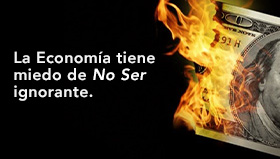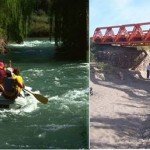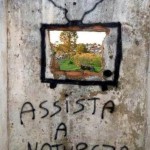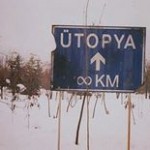I have a cat at home, a copilot, a wingman, a friend… his name is Chico Mendes, because in another life he was a true explorer. He goes out at night, climbs trees that seem to him like mountains, chases ghosts, and provides a subtle purr to my life.
“Amazon’s murderers kill pesky trees and kill people who make them upset as well.
People like Chico Mendes.
His parents, slaves by debt, had arrived at the rubber plantation from the distant Ceará desert.
He learned to read at the age of 24.
In Amazonia, he organized unions and gathered those who were alone, enslaved laborers, evicted Indians, against the land eaters and their hired bandits, and against the World Bank experts, who fund the poisoning of rivers and the bombing of the jungle.
And he was marked to die.
The shots came through the window.”
“Los Hijos de los Días” (The Sons of the Days). Eduardo Galeano. Siglo Veintiuno Editores. Buenos Aires. 2012. Page. 393.
The real Chico Mendez, defender of the planet, was shot dead… 25 years have passed, and another Chico comes into scene, also from Brazil, a defender of the Amazonian forests. A joke of destiny, or a hidden causality; the fact is that during a debate in a US university, a young US ecologist asked Cristóvão Buarque, former Workers Party governor of the Federal District of Brasilia and currently Brazil’s minister of education, about his ideas on internationalizing the Amazonia, so often described as the “lung of humanity.”
The young man said he hoped Buarque would answer with the vision of a humanist rather than of a Brazilian. What he got was a response that was both Brazilian and humanist, one as valid and timely today as it was four years ago. Â This is what he said:
“As a Brazilian I would always argue against internationalizing the Amazon Rain Forest. Even though our government has not given this patrimony the care that it deserves, it is still ours. As a humanist who fears the risks posed by the environmental degradation the Amazon is suffering, I could imagine its internationalization, just as I could imagine the internationalization of everything else of importance to humanity.
If, from a humanist perspective, the Amazon must be internationalized, we should also internationalize the world’s petroleum reserves. Oil is as important for the well being of humanity as the Amazon is for our future. The owners of the reserves, however, feel that they have the right to increase or decrease the amount of oil production, as well as increase or lower the price per barrel. The wealthy of the world feel they have the right to burn up this immense patrimony of humanity.
In much the same way, the wealthy countries’ financial capital should be internationalized. Since the Amazon Rain Forest is a reserve for all human beings, no owner or country must be allowed to burn it up. The burning of the Amazon is as serious a problem as the unemployment caused by the arbitrary decisions made by global speculators. We cannot permit the use of financial reserves to burn entire countries in the frenzy of speculation.
Before we internationalize the Amazon, I would like to see the internationalization of all the world’s great museums. The Louvre should not belong merely to France. The world’s museums are guardians of the most beautiful pieces of art produced by the human genius. We cannot let this cultural patrimony, like the natural patrimony of the Amazon, be manipulated and destroyed by the whims of an owner or a country. A short time ago, a Japanese millionaire decided to be buried with a painting by a great artist. That painting should have been internationalized before this could happen.
The United Nations is holding the Millennium Summit parallel to this meeting, but some Presidents had difficulties attending due to U.S. border-crossing constraints. Because of this, I think that New York, as the headquarters of the United Nations, should be internationalized. At least Manhattan should belong to all humanity, as should Paris, Venice, Rome, London, Río de Janeiro, Brasilia, Recife… Each city, with its unique beauty and its history, should belong to the entire world, to all of humanity.
If the United States wants to internationalize the Amazon Rain Forest to minimize the risk of leaving it in the hands of Brazilians, we should internationalize its nuclear arsenals, if only because the country has already demonstrated it is capable of using these arms, causing destruction thousands of times greater than the deplorable burnings done in the forests of Brazil.
In their debates, the US presidential candidates have defended the idea of internationalizing the world’s forest reserves in exchange for debt relief. We should begin by using this debt to guarantee that each child in the world has the opportunity to go to school. We should internationalize the children, treating them, all of them, no matter their country of birth, as patrimony that deserves to be cared for by the entire world. Even more than the Amazon deserves to be cared for. When the world’s leaders begin to treat the poor children of the world as a patrimony of humanity, they will not let them work when they should be studying, die when they should be living.
As a humanist, I agree to defend the internationalization of the world. But, as long as the world treats me as a Brazilian, I will fight for the Amazonia to remain ours. Ours alone.”
Until next week!
Brian Longstaff.-




















Leave a Comment